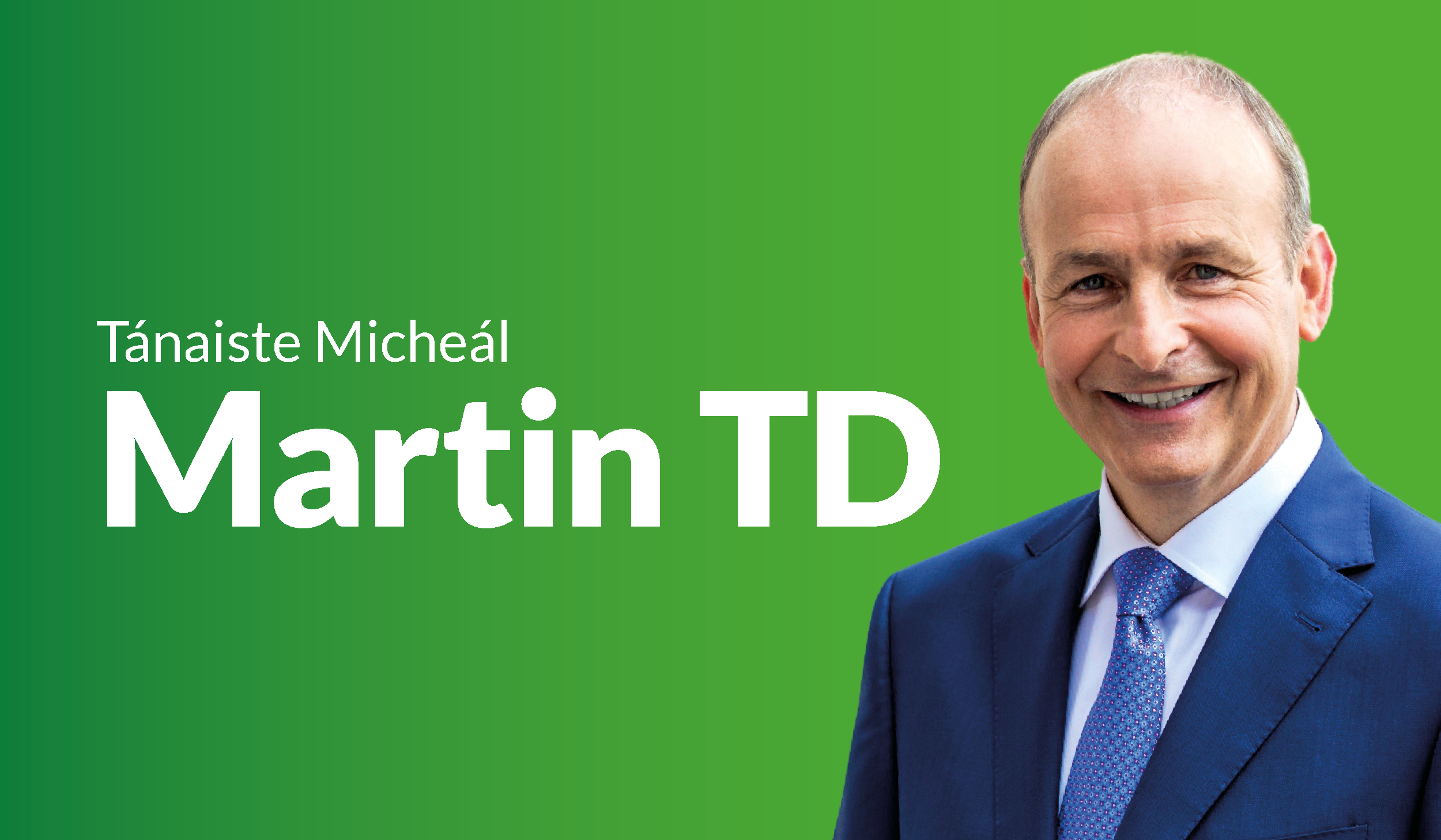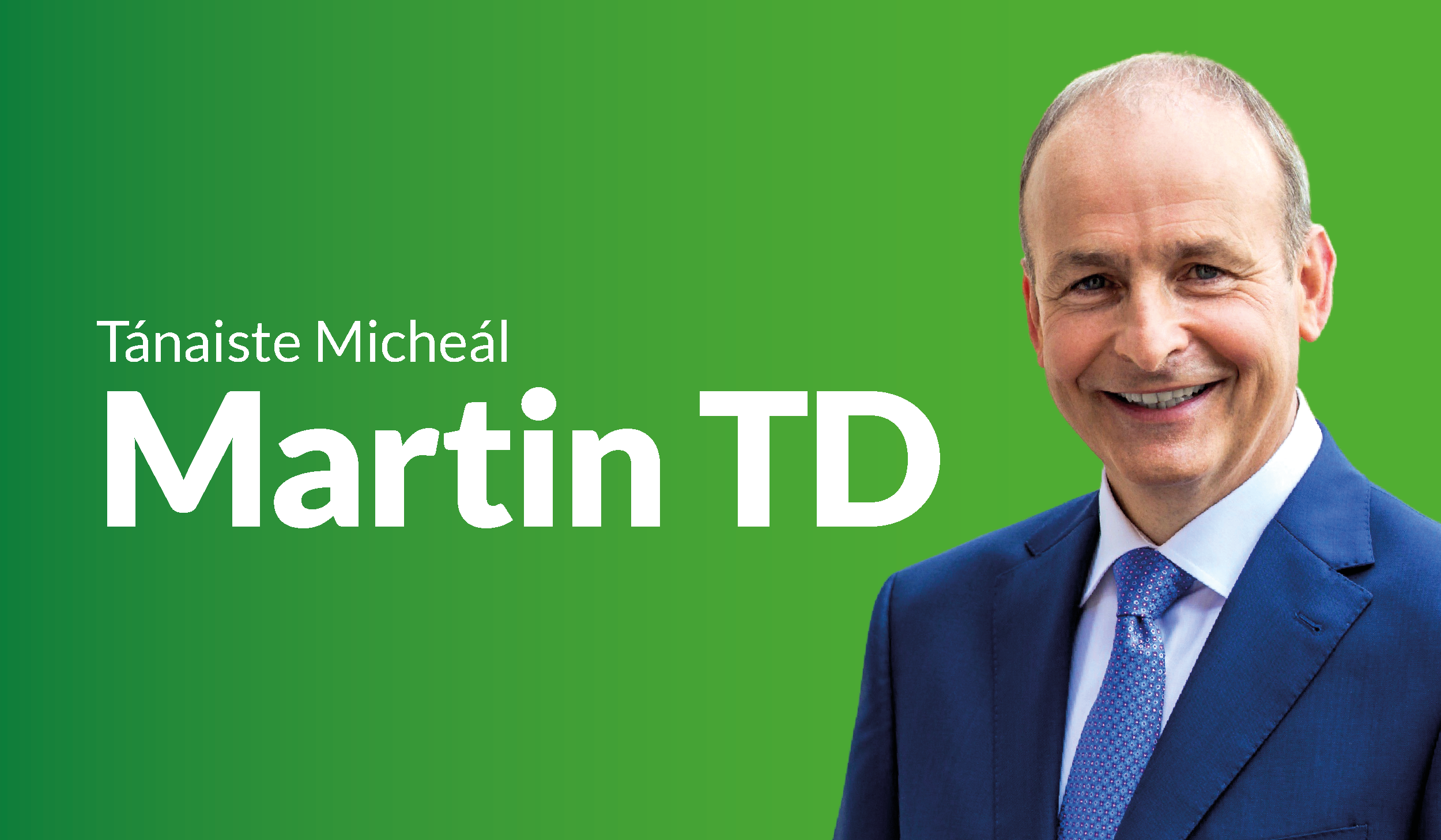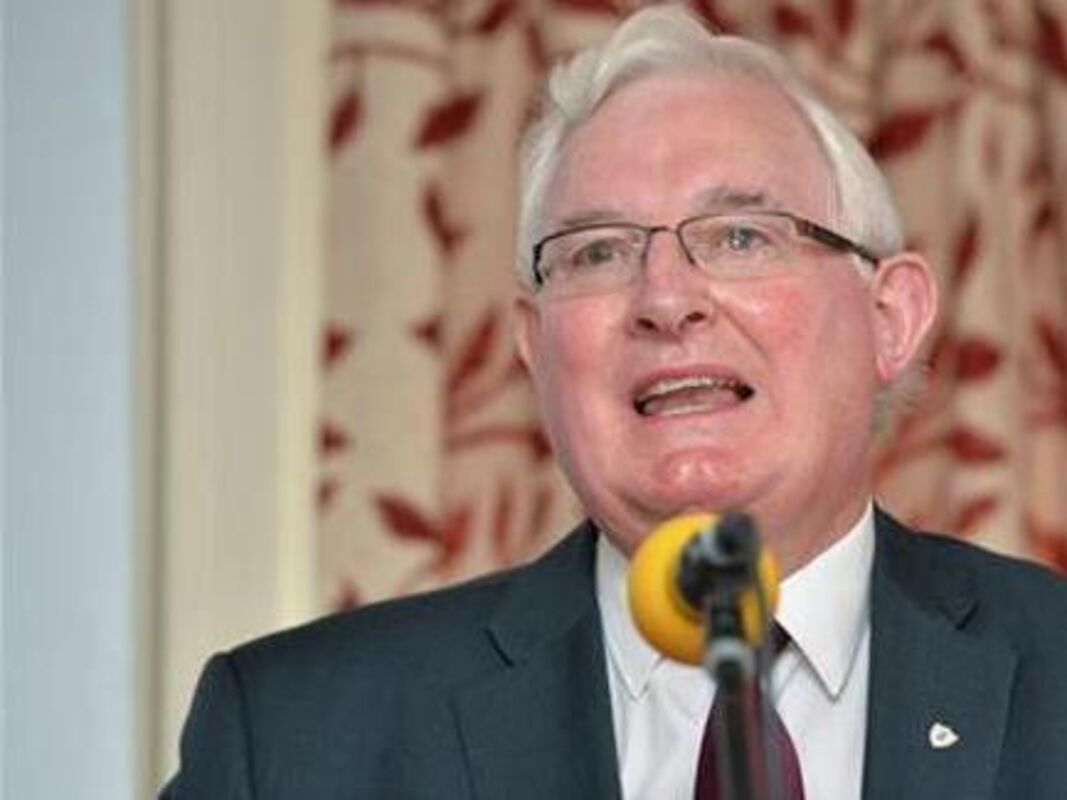Speech by the Taoiseach, Micheál Martin, T.D. Women and Agriculture Conference
Published on: 27 October 2022
Speech by the Taoiseach, Micheál Martin, T.D. Women and Agriculture Conference
27 October 2022
Good morning everyone, Amii, thank you for having me here today to join you as you celebrate women and agriculture.
I know that today represents an important opportunity to share your unique experience as women in farming, to discuss the opportunities and challenges you face, and to meet like-minded colleagues from across the whole sector and across the country.
I’m sure many of you, like myself are finding it very encouraging to be back at events after the enforced hiatus of the last two years. It is a credit to the Irish Farmers Journal that you have persevered and come back this year with such enthusiasm and revived your conference with an excellent line up of speakers and discussion topics.
I want to pay tribute briefly to editor and CEO of the IFJ Justin McCarthy who, as I understand it, will leave Farm Centre after 17 years. Your exceptional exposé on the Brazilian beef industry which brought about real change at European level and you have ensured that the voices of those in farming and rural Ireland have been well served in your time.
I also want to acknowledge the contribution of Mairead Lavery who has taken a step back in recent times, but who has played a huge role in making this one of the great conferences on the agriculture calendar each year.
Ba mhaith liom aitheantas a thabhairt do thábhacht earnálacha na talmhaíochta agus na feirmeoireachta don tír. Is ionann iad agus cnámh droma cheantair tuaithe na hÉireann, a chuireann go mór le geilleagar agus gné shóisialta na bpobal sin. Ní féidir tionchar staire agus cultúir na talmhaíochta in Éirinn a shéanadh.
Gender issues
The role of women within agriculture is, I think, increasingly mentioned, but rarely fully acknowledged. Agriculture is still largely a male dominated sector, and the specific contributions that women provide to the agriculture sector, alongside the distinct challenges faced by women in agriculture, are often not adequately recognised.
While some 12% of herd numbers are held by women, that does not tell the whole story of the effort, skill and sacrifice made by women on the family farm both inside and outside the farmgate.
Gender equality is a key priority for Government and if we are to make meaningful advances in gender equality, it will require a broad and inclusive approach that reaches individuals, families, communities and sectors.
At a national level, the work of the Joint Oireachtas Committee on Gender Equality continues to consider the report and recommendations from the Citizen’s Assembly on Gender Equality, guided by the excellent chairing of Dr. Catherine Day.
I addressed the Committee last month, highlighting that many of the recommendations relate to areas where the Government is actively engaged, for example in gender pay gap reporting; family leave; childcare provision; domestic and gender-based violence, and; improvements to the data we collect around equality issues.
The Citizen’s Assembly report also called attention to the need to facilitate women to participate and assume leaderships positions in the workplace. This is true across the country, as well as for specific sectors such as agri-food.
Agri-food and Gender
It is important that women are enabled to become leaders in the agri-food sector. In 2016, the CSO recorded over 71,000 of those working on farms as female, but less than one quarter of those were holders of the farms on which they worked. In the decade up to 2020, the percentage of female farm holders has increased by just 1%. By comparison, around 30% of farms across the EU are managed by women.
I believe that increasing female leadership and participation in agriculture is vital for the future of the sector. Our priorities in national and EU policy reflect this belief.
Ireland’s CAP Strategic Plan, approved by the EU Commission in August, identified gender inequality as a weakness, while the economic benefit arising from increasing female participation was identified as an opportunity.
For the first time by any Government, we have designed several measures in this CAP which will, we hope, support greater gender equality.
These include an increased grant rate of 60% under the Capital Investment Scheme or TAMS. All CAP measures are now developed with a gender-aware perspective to ensure there are no inherent barriers to women’s participation.
Our National agri-food policy also places a priority on gender equality. Food Vision 2030 recognises the importance of gender balance to the long-term sustainable future of the sector.
It includes actions to promote and improve gender balance at all levels, including a commitment to represent the agri-food sector in the development of the next National Women and Girl’s Strategy.
This is one of the reasons that we will hold a National Dialogue on Women in Agriculture next year. This will provide you – the individuals with innate knowledge and experience on the topic – with an opportunity to discuss how to increase the visibility and status of women in agriculture.
I am pleased that the former Tánaiste and Minister for Agriculture Mary Coughlan will chair this dialogue next year and I encourage you all to engage fully with it. I know that my colleague Minister McConalogue and Mary will be announcing further details on this national dialogue in the coming weeks.
Increasing diversity in business makes for better decision-making. This is also true of the agriculture sector, across all categories and sizes. I hope that by actively working to better understand and include women in the sector, we will see agri-food continue to cultivate resilience and grow sustainably.
Climate Issues
I know that your resilience has been tested over the past few years. The agriculture sector has navigated not only the impact of the war in Ukraine but also the pandemic, alongside the challenge of Brexit.
Agri-food exports fell by just 2% in 2020 at the height of the pandemic, and rebounded in 2021. This shows the ability of our farmers to thrive in the face of challenges. This ability must be harnessed now for the transition ahead.
Because it is important that every sector plays its part to reach our overall climate target of a 51% reduction in carbon emissions by 2030.
As you know, the Agricultural sector specifically must reduce its emissions by 25% and we will continue to support farmers during this transition. This is a challenging and ambitious target but one that I believe is achievable given the resilience and can-do attitude of our farm families.
Budget 2023 included up to €500 million in funding specifically ringfenced for agri-environment, with increased funding for State Agencies, such as Teagasc, to assist them in advising and working with farmers to improve farm sustainability.
I acknowledge that achieving these targets will be difficult. But no sector is, or can be, unaffected by this shared, all-encompassing but necessary transition.
With increasing evidence of the link between gender equality and sustainability, it is clear that women in agriculture have an important role to play in climate action. And I am confident that, with your help, these targets can be achieved.
Ukraine
As we gather here today there is no escaping the fact that the global system is now experiencing significant challenges as a result of the illegal and immoral invasion of Ukraine.
The people of Ireland, supported by Government, have shown great support for Ukraine and the Ukrainian people. We remain resolute in this solidarity and will continue to support a humanitarian, economic and diplomatic response to the crisis.
Significant implications are being seen across all sectors, including the farming sector.
Ireland and Ukraine share many similarities – especially in the area of agriculture and farming.
Since the invasion of Ukraine in February 2022, we have introduced a number of schemes and packages to assist farmers. These targeted measures will help Irish farmers at a time of escalating costs and build further resilience against the ongoing impact of the uncertain geo-political situation.
Budget 2023 introduced further measures to support businesses through this challenging time. Work is ongoing on a Ukraine Credit Guarantee Scheme to assist businesses, including farmers, fishers and food businesses in meeting their liquidity and investment needs.
Conclusion
In the face of unprecedented challenges, both globally and closer to home, we need an openness to new ideas, new practices and new ways of working. Women can, and will, play a leading role in driving the necessary spirit of innovation across the agriculture sector.
I hope that this event gives you an opportunity to celebrate the fact that you are part of a rich community of women, of farmers and of a modern business sector with much to offer the economy and wider society. I wish you well in your discussions.



